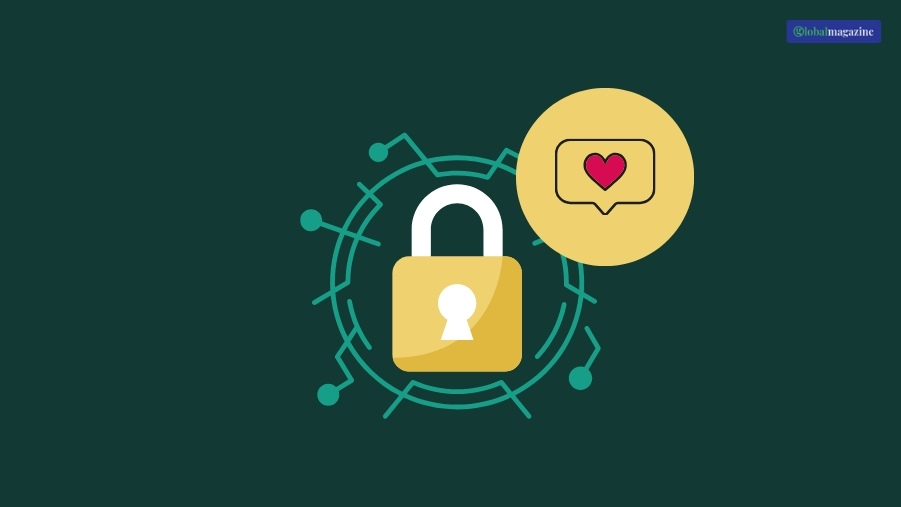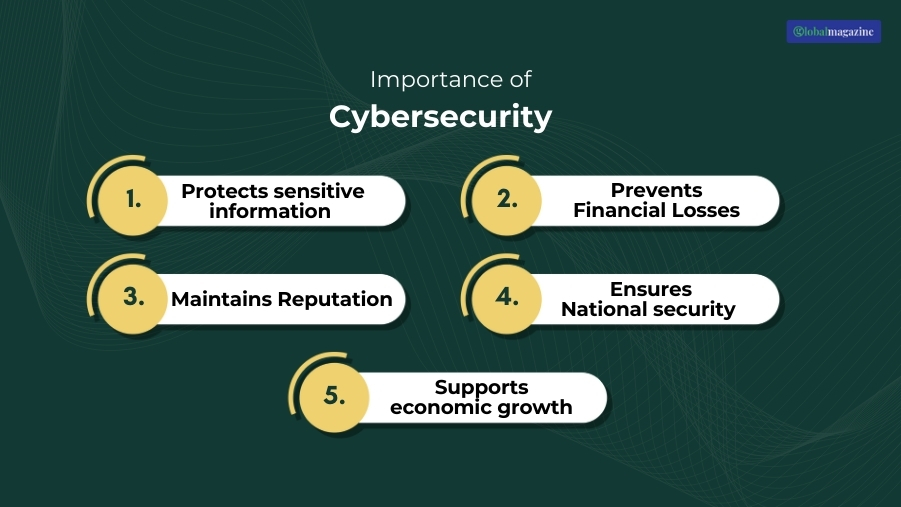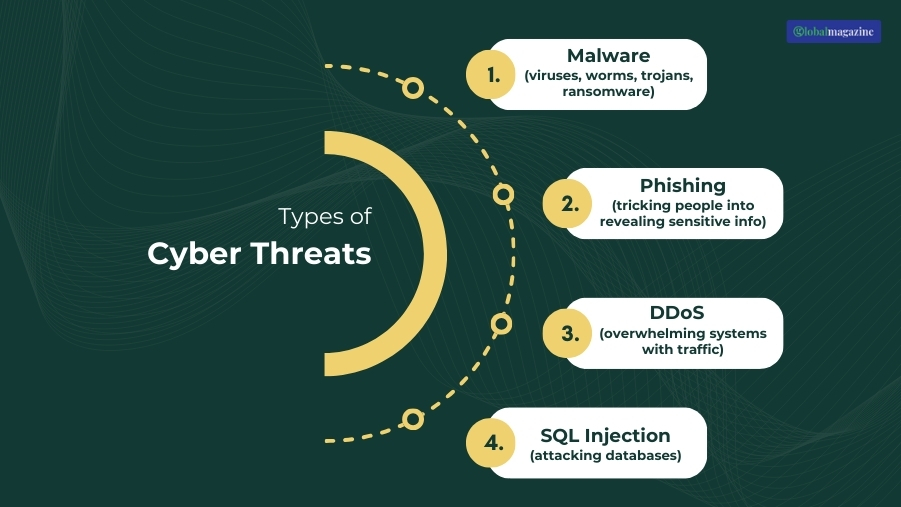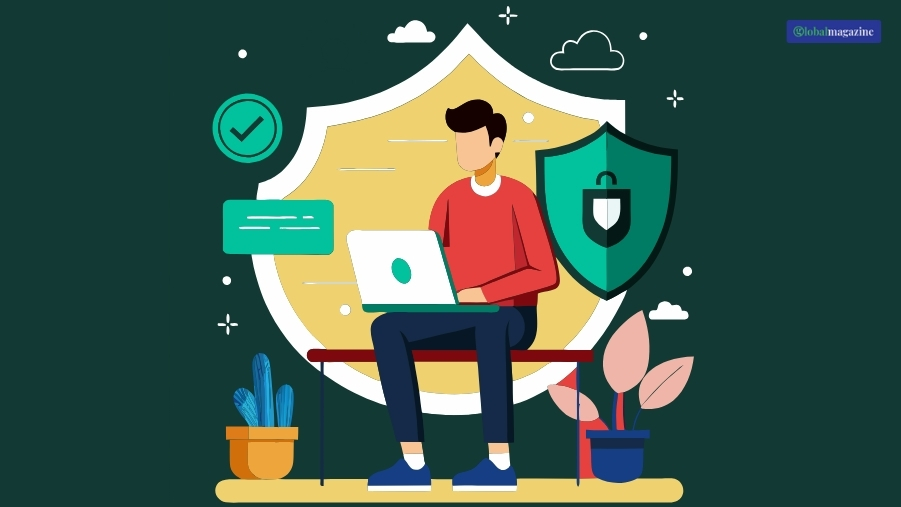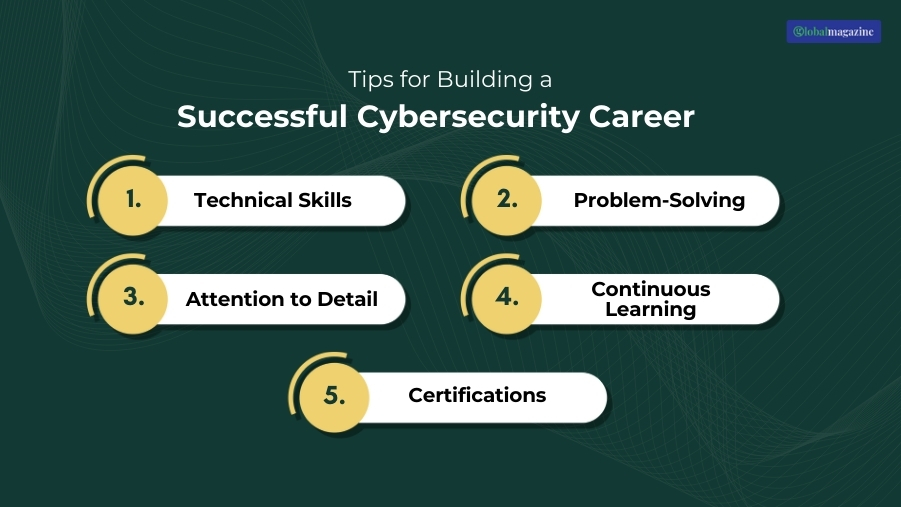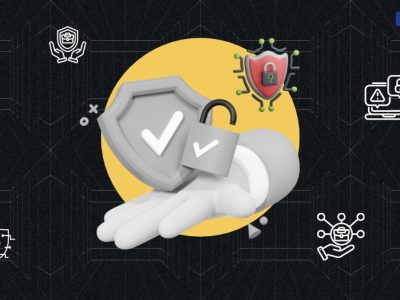Is Cybersecurity Hard? Breaking the Myth as a Digital Nomad!
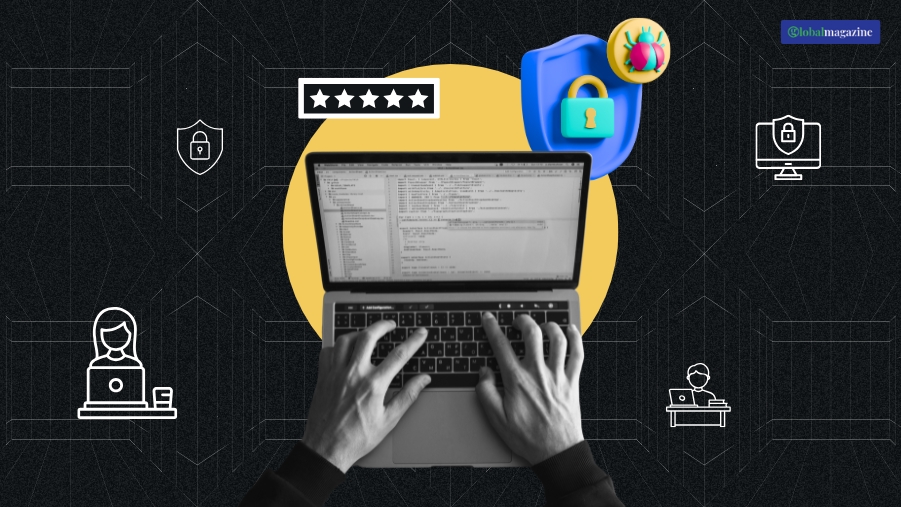
“Is cybersecurity hard? Remote work and cybersecurity: will these even work?”
If you have been thinking about these, it is time to put an end to this debate. Being a remote employee is great as you work on a secluded beach somewhere until a cyberattack compromises your online business!
It is one of the most terrifying realities that any digital nomad faces. I know this because my cousin has faced a similar situation (and I know he is not the only one!)
While cybersecurity might seem daunting, especially for those working remotely, it doesn’t have to be.
In this article, I will debunk the cybersecurity myths and provide practical tips to help you stay safe and secure as a digital nomad.
Furthermore, I will explore the challenges unique to remote workers, such as public Wi-Fi networks, lack of physical security, and the potential for social engineering attacks.
I will also delve into the importance of using strong passwords, enabling two-factor authentication, and keeping your software and operating systems up to date.
Additionally, I will discuss the benefits of using virtual private networks (VPNs) to protect your online activities and ensure your data remains private.
Henceforth, keep on reading this blog till the end to learn more…
Understanding the Basics of Cybersecurity
Cybersecurity is more important than ever in today’s digital age, where almost everything is connected to the internet.
But what is it, exactly?
Cybersecurity protects digital information, networks, and systems from unauthorized access, use, or destruction. It’s like securing your home, but instead of physical locks, we use digital measures.
In other words, it is the practice of protecting your computer systems, networks, and data from unauthorized access, use, disclosure, disruption, modification, or destruction.
But is it THAT important? The answer is YES.
Cybersecurity is crucial for individuals and businesses alike. For individuals, it protects your personal information from identity theft, financial fraud, and other harmful consequences.
On the other hand, for businesses, it safeguards their sensitive data, prevents disruptions to operations, and maintains customer trust.
Several key components of cybersecurity sometimes make people think it is a difficult career path. These include:
- Network Security: This involves protecting your computer network from unauthorized access. It’s like locking the doors to your home. You want to prevent outsiders from entering your network and accessing sensitive information. This can be achieved through various methods, such as firewalls, intrusion detection systems, and network segmentation.
- Application Security: Applications, or apps, are programs you use on your computer or mobile device. Application security ensures these apps are free from vulnerabilities that hackers could exploit. This involves conducting security assessments, patching vulnerabilities, and implementing secure coding practices.
- Data Security: Data is the most valuable asset in the digital world. Data security protects your personal information, such as your name, address, and financial details, from unauthorized access or theft. This can be achieved through encryption, access controls, and data loss prevention measures.
Is Cybersecurity Hard? Here’s What Data and Experts Say
Cybersecurity might seem daunting, especially for digital nomads who are constantly on the move and rely heavily on digital tools. Therefore, it is only natural for people to think that cybersecurity is hard. However, the reality is more nuanced.
The Growing Importance of Cybersecurity
As our world becomes increasingly digital, the importance of cybersecurity has skyrocketed. With the rise of online activities, from banking to social networking, the risk of cyberattacks has increased significantly.
In 2023, over 2,365 reported cyberattacks were reported, impacting more than 343 million people. This statistic alone shows how widespread and severe cyber threats have become.
The increasing number of attacks highlights the need for strong cybersecurity measures to protect personal and organizational data.
Threats Have Been Increasing
Understanding the common types of cyber threats can demystify the field. The most prevalent threats include:
- Phishing: A method where attackers trick individuals into providing sensitive information, such as passwords or credit card numbers, by pretending to be a trustworthy entity. Phishing often occurs through deceptive emails or websites.
- Malware: Short for malicious software, malware includes viruses, worms, and trojans designed to damage or gain unauthorized access to computer systems.
- Ransomware: A type of malware that locks users out of their systems or encrypts their data, demanding a ransom to restore access.
In 2023, 35% of malware was delivered via email, making it the most common method for such attacks. Business email compromises, where attackers gain access to business email accounts to steal sensitive information, led to losses exceeding $2.9 billion.
The Challenges of Cybersecurity as a Career
So, you have decided to start your career in cybersecurity. Great! But have you considered the challenges you should know about in this area?
Considering that the digital age and space are evolving, it is only natural for the issues and problem areas to diversify.
Companies these days have started to stay extra vigilant with their network. They have started to monitor the possible threats and potential cyber-attacks continuously. That’s why the challenges in the field of cybersecurity as a career path have also increased.
Some of the major concerns are as follows:
Technical Complexity
Cybersecurity can be a complex field, even for experienced professionals. The threat landscape is constantly evolving, with new vulnerabilities and attack methods emerging all the time.
Additionally, IT infrastructures can be incredibly complex, making identifying and addressing security risks difficult.
For digital nomads, the challenges can be even greater. Furthermore, public Wi-Fi networks, often used by nomads, can be less secure than private networks.
Additionally, the constant movement and changing environments can make it difficult to maintain a consistent level of security.
Human Factors
Despite the best technological defenses, human error remains a significant factor in cybersecurity breaches.
Phishing attacks, social engineering, and accidental data leaks are examples of how human factors compromise security.
Digital nomads may be particularly vulnerable to social engineering attacks, as they may be likelier to trust strangers or respond to requests from unknown sources.
Therefore, it’s important to be aware of these risks and exercise caution when interacting online.
Economic Challenges
Finally, cybersecurity can be expensive. Implementing robust security measures like firewalls, intrusion detection systems, and encryption can require significant financial investment.
Additionally, the costs associated with recovering from a cyberattack can be devastating financially and reputationally.
For digital nomads, the economic challenges may be even greater. They may need access to the same IT support or resources as larger organizations, making it more difficult to respond to security threats.
Expert Opinions on Cybersecurity
Cybersecurity Experts often emphasize that while the field has its challenges, it is not inherently difficult.
According to a report by UpGuard, the critical skills needed for cybersecurity include problem-solving, attention to detail, and a willingness to learn. These skills are more important than having a strong technical background.
This means anyone can succeed in cybersecurity with the right mindset and resources. Furthermore, the field values continuous learning and adaptability, making it accessible to those committed to staying updated with the latest trends and threats.
The Cost of Cybersecurity Breaches
Cybersecurity breaches can have significant financial impacts. In 2024, the average cost of a data breach was $4.88 million. This high cost underscores the importance of investing in cybersecurity measures to prevent such incidents.
For businesses, a breach can lead to loss of customer trust, legal penalties, and substantial financial losses. Therefore, proactive cybersecurity measures are essential to mitigate these risks.
Job Market and Opportunities
The demand for cybersecurity professionals is growing rapidly. Information security jobs are projected to grow by 32% between 2022 and 2032. This growth is driven by the increasing need for organizations to protect their digital assets.
As cyber threats evolve, the demand for skilled cybersecurity professionals rises. This creates numerous opportunities for those interested in pursuing a career in cybersecurity.
Additionally, the field offers a variety of roles, from ethical hacking to security analysis, catering to different interests and skill sets.
The field of cybersecurity offers various career paths, each with unique roles and responsibilities:
- Cybersecurity Analyst: Analysts monitor networks for security breaches and investigate incidents when they occur. If you want to become one, you must know that they implement security measures to protect an organization’s data and systems.
- Penetration Tester (Ethical Hacker): Penetration testers simulate cyberattacks on systems to identify vulnerabilities before malicious hackers can exploit them. They provide recommendations to strengthen security.
- Security Architect: Security architects design and implement robust security systems to protect an organization’s IT infrastructure. They develop security policies and ensure that all systems comply with these policies.
- Incident Responder: Incident responders are the first line of defense during a cyberattack. They quickly address and mitigate security breaches, minimizing damage and restoring normal operations.
- Chief Information Security Officer (CISO): CISOs oversee an organization’s cybersecurity strategy. They manage security teams, develop policies, and ensure compliance with regulations.
Can Cybersecurity be EASY for Professionals?
Even if a lot of people think that cybersecurity is hard for professionals and experts, with the right strategies, everything is easy. You, as a professional, can simplify their efforts and enhance protection.
Regular updates, strong authentication, and continuous education are key to preventing cyber threats.
Here are some practical tips that you can follow. By following these tips, cybersecurity professionals can create a more secure environment with less complexity.
So, let us get right into it:
1. Understand Common Threats
Knowing the types of cyber threats is the first step. Common threats include malware, phishing, ransomware, and insider threats. By understanding these, professionals can better prepare and defend against them.
2. Use Strong Passwords and Multi-Factor Authentication (MFA)
Create passwords that are at least 12 characters long, combining letters, numbers, and symbols. MFA adds an extra layer of security by requiring a second form of identification, such as a code sent to your phone.
3. Keep Software Updated
Regularly update all software and devices to patch vulnerabilities that cybercriminals might exploit. Enable automatic updates whenever possible to ensure you’re always protected.
4. Educate and Train Employees
Human error is a significant risk. Regular training on recognizing phishing attempts and other social engineering tactics can drastically reduce this risk. Simulations and ongoing education help keep everyone vigilant.
5. Implement a Robust Backup Strategy
Regularly back up data and ensure backups are stored securely. This can mitigate the damage from ransomware attacks and data breaches.
6. Use Encryption
Encrypt sensitive data both in transit and at rest. This ensures that even if data is intercepted or accessed without authorization, it remains unreadable.
7. Limit Access to Sensitive Information
Implement the principle of least privilege, giving employees access only to the information they need to perform their jobs. This reduces the risk of insider threats and accidental data leaks.
8. Monitor and Respond to Threats
Use security tools to monitor network traffic and detect unusual activity. Having an incident response plan in place ensures quick action when a threat is detected.
Skills and Qualifications: Tips for Building a Successful Cybersecurity Career
A cybersecurity career can be rewarding and impactful With the right skills and qualifications.
But what are these? What do you need to ensure that your journey in this field is smoother as a remote worker and as a digital nomad? Let me help you out with that:
Pursuing a career in cybersecurity requires a mix of technical and soft skills. Here are some key skills and qualifications:
- Technical Skills: Knowledge of operating systems (like Windows and Linux), networking, and programming languages (such as Python, Java, or C++) is essential. Understanding how to use cybersecurity tools like firewalls, intrusion detection systems, and antivirus software is also crucial.
- Problem-Solving: Cybersecurity professionals need to think critically and solve complex problems quickly. This involves identifying vulnerabilities and finding effective solutions to protect systems.
- Attention to Detail: Being meticulous is vital in cybersecurity. Small oversights can lead to significant security breaches.
- Continuous Learning: The cybersecurity landscape is always evolving. Through continuous education and certifications, professionals must stay updated with the latest threats and technologies.
- Certifications: Earning certifications like Certified Information Systems Security Professional (CISSP), Certified Ethical Hacker (CEH), and CompTIA Security+ can enhance your qualifications and job prospects.
Is Cybersecurity Hard… What Do YOU Think Now?
In conclusion, while cybersecurity may seem challenging at first glance, data, and expert opinions suggest that it is manageable with the right approach.
For digital nomads, understanding common threats and staying informed about best practices can go a long way in ensuring their digital safety.
The field offers numerous opportunities for those willing to learn and adapt, making it an accessible and rewarding career path.
Read More:
















